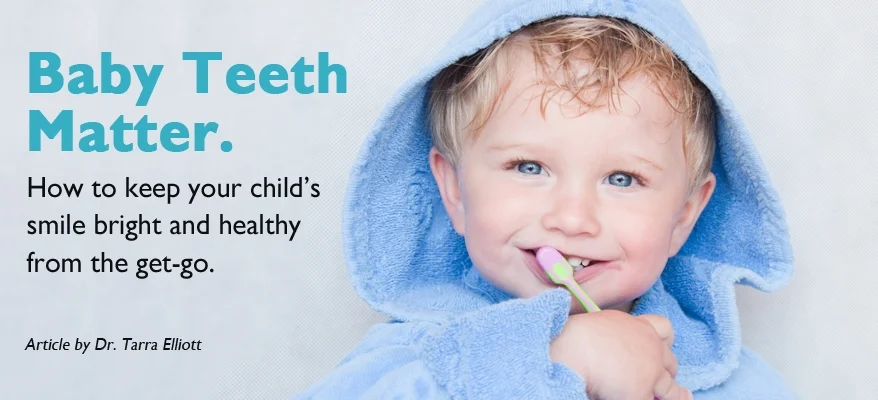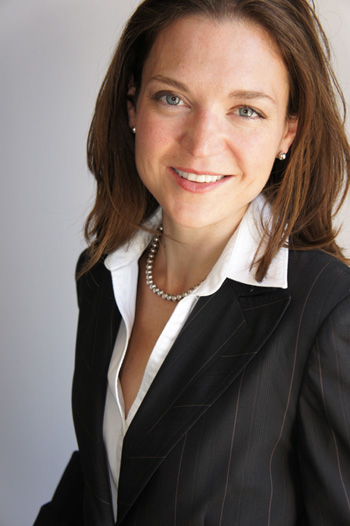Most babies get their first tooth around six months and their last primary molars before they turn three. Your child will keep these “baby” teeth until age 10 or 12, so it’s important to care for them. Here’s how to keep your child’s smile bright and healthy
1. Start cleaning now: Even before the appearance of baby’s first tooth, his mouth should be wiped with a warm cloth each evening to get rid of excess liquid or food. This ritual also gets your baby used to proper tooth care.
2. Establish an early brushing routine: Once teeth appear, brush morning and night with a warm cloth, finger brush or infant toothbrush. The abrasive action of a wet cloth or brush is sufficient to remove debris and dental plaque. Teach your child “two for two,” which means brushing twice a day for two minutes each time.
3. Monitor bedtime drinks: Don’t allow your baby or toddler to sleep with a bottle or sippy cup! Prolonged exposure to any sugary drink (including milk) can cause cavities. If your child wants to go to bed with a drink, fill a cup with water.
4. Watch the fluoride: The mineral fluoride strengthens tooth enamel and increases resistance to the acid secreted by cavity-causing bacteria. Fluoride is usually found in tap water so your child is probably getting all he needs. If you’re giving him bottled water, look for a brand with 0.7 to 1.2 ppm fluoride. Too much fluoride is unhealthy for youngsters, so it is important that you use only water or fluoride-free children’s toothpaste until your child learns to rinse and spit.
5. Do-it-yourself checkups: Lift your child’s lips and look at her teeth and gums on a regular basis. Take note if there are any colour changes, lines or spots. If so, contact your dentist.
6. Floss: Once teeth start to touch, it’s time to add flossing to your child’s routine. Aim for once a day. Floss handles are best to use with toddlers.
7. Teach them to brush: Children love to mimic mom and dad so let them see you brushing your own teeth.
Dr. Tarra Elliott authors articles for local and national magazines. This article was featured in Village Living.
8. Bacteria prevention: Believe it or not, you aren’t born with the bacteria that cause dental decay. Once you catch it, however, it can never be completely eradicated. Most children actually get these bacteria from their parents. To eliminate transfer, avoid licking pacifiers and don’t share spoons, cups, food or toothbrushes.
9. Visit the Dentist: The Canadian Dental Association recommends that children visit the dentist no later than 12 months of age. Although this seems early, the goal is to provide preventive services and get your baby used to being at the dentist. Here’s what your dentist should discuss at that first visit:
- Why sleeping with a bottle can increase cavities
- Young oral hygiene practices
- The benefits of water fluoridation
- Developmental milestones, such as sequence of tooth eruption
- Monitoring jaw growth and development
- Effects of thumb-sucking and pacifiers
- Injury prevention, trauma treatment
- The importance of regular home and professional care
- The relationship of diet to dental disease
- The effect of certain medications and conditions on oral health
10. Get that first dental cleaning: The first cleaning depends on how cooperative your child is. He will need to be able to sit still with his mouth open for a prolonged period of time. Most children are five before they will sit through a full cleaning.
Get your child started with dental health today by booking a visit with dr. tarra elliott.
Dr. Tarra Elliott practices at Eglinton & Avenue Road. We're welcoming more kids and families to our practice every day. Give us a call!



